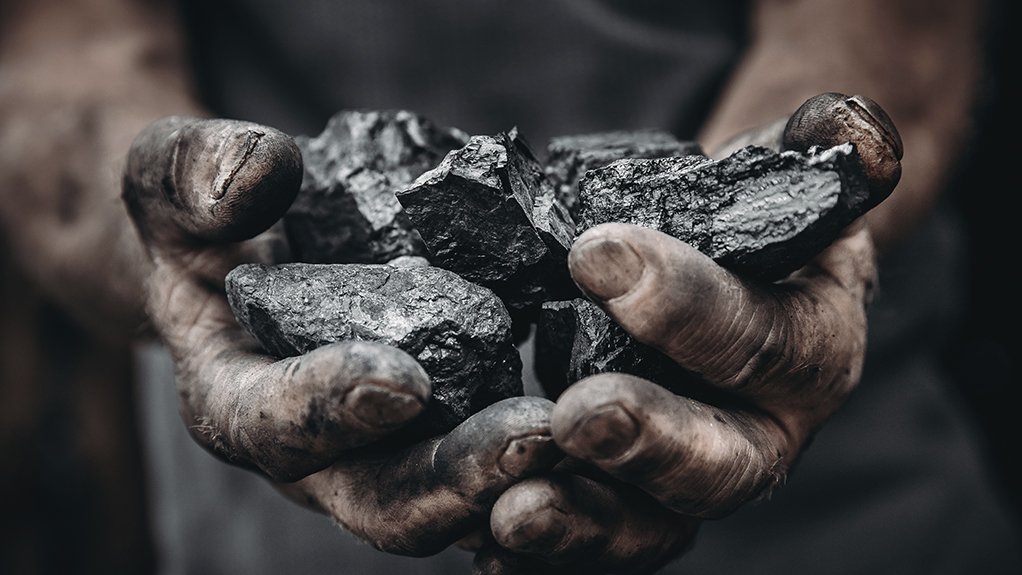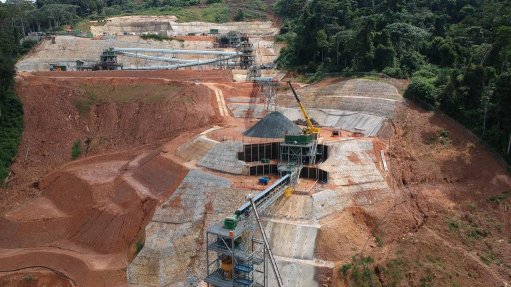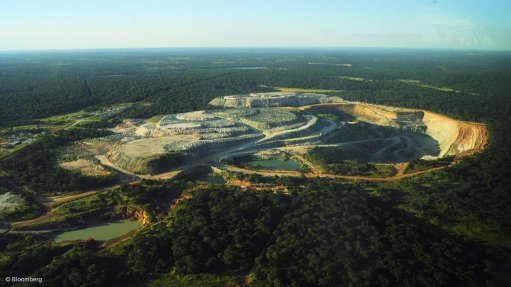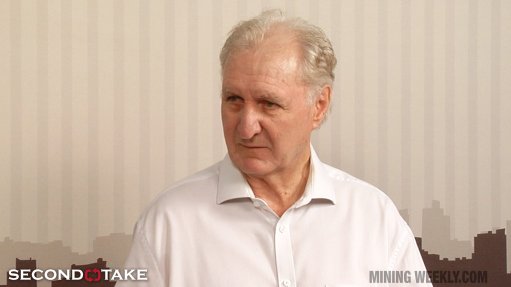Coal crucial for alleviating poverty and loadshedding


A lack of investment in coal mining globally has raised concerns for coal supply going forward. This, coupled with high demand, could result in supply constraints and high prices
Despite the negative impacts that coal-fired power stations have on the environment and local populations, localized energy solutions developer NET Energy owner Mike Blenkinsop has stressed that the detrimental impact of removing coal-fired power capacity from the South African electricity system would also be significant, as many rely on the coal industry for work opportunities.
“So many people make a living from coal and would die in poverty if it weren’t for the coal industry, so a balance needs to be struck. Equally, there is the economic cost of loadshedding. We all know that there is an unserved cost of electricity to our economy,” he told delegates at the Southern African Coal Processing Society’s International Coal Conference on August 16.
Blenkinsop highlighted that there were a growing number of energy projects in the world, indicating the growing need for coal.
He also pointed out that the most significant driver behind energy growth is poverty alleviation.
“Sixty to seventy per cent of the world’s energy is used up by one-billion of the eight-billion people on earth. People living in abject poverty use virtually no energy, but as you alleviate poverty, elements such as energy use and therefore emissions start to grow.
“Further, technology will drive the Fourth Industrial Revolution. In 2017, it was predicted that cloud computing will take more energy than Germany, which is the sixth-largest energy user in the world.
“Cloud computing now consumes more power than Japan, which is the third-largest energy user globally. It was also predicted, in 2017, that 20-million electric vehicles (EVs) would be in use by 2020. The impact of the transition is significant for energy,” Blenkinsop pointed out.
He noted that while the number of EVs in use globally would soon grow to about 26-million, this number was still less than 2% of the total vehicles in the world. Internal combustion engine vehicles would still require fossil fuels for a number of years, particularly in the developing world.
“Coal will lose its market share over time. It, however, cannot be totally removed from the system. Renewables can pick up the slack, coal will be used for baseload. There will be robust demand locally, and there will be even more robust international demand going forward.
“From a supply point of view, however, this is where things get a bit worrying,” he said.
COAL CONSUMPTION AND SUPPLY
Blenkinsop highlighted that coal consumption had reached the highest ever levels in 2022 and that coal consumption was expected to grow by 1.5% this year.
He added that many coal-fired power stations were still being built, particularly in Asia, and that the lifespan of coal-fired power plants could often go up to about 50 years, which meant that coal demand would remain strong for many years to come.
A lack of investment in coal mining globally had also raised concerns in terms of coal supply going forward, he said.
This, coupled with high demand for coal that is expected to increase going forward, could result in supply constraints and high coal prices in the future.
“You’re seeing in the major coal-producing areas of the world that it’s becoming more and more difficult to get permits for coal expansions. Therefore, supply cannot meet demand. What we’ve seen in the last year or two is that the cost of production has gone up dramatically,” Blenkinsop pointed out.
These concerns came on the back of a lack of global social impact bond (SIB) capital investment into coal mining, inflation, deteriorating resource quality, increasing legislative pressures and requirements and difficulty finding investment.
LOCAL SUPPLY
Blenkinsop also discussed concerns over coal supply in South Africa and how a lack of SIB investment by State-owned power utility Eskom into coal mining and supply had contributed to this.
“We've heard for years about a coal cliff. Eskom has done its best by dropping its availability to avoid this, but coal supply still has to be secured. I’m not sure where Eskom is going to get it, because it's technically bankrupt and unable to invest capital into its own plants, let alone that of its suppliers,” he said.
He also noted that several coal mines in the eMalahleni region would be coming to the end of their mine life between 2028 and 2035, as few large fundable projects remained in the area.
While extensions to existing mines are an option, this would be expensive.
The coal supply challenge is being compounded by poor logistical infrastructure, with State-owned rail company Transnet Freight Rail struggling to transport coal across the country and to port for the export market.
Further, he said Eskom was competing with growing inland and export markets for coal.
“Eskom is no longer a guaranteed supplier of offtake coal. It is technically bankrupt, and who’s going to lend money for a commodity like coal to a supplier of coal?”
Eskom also needed to deal with greater demand for higher-quality coal, he added, saying this made efficient coal processing more important.
Blenkinsop also pointed out that concerns over a lack of high-quality coal supply could be detrimental to South Africa’s coal exports. This is owing to new super-critical and ultra-super-critical coal-fired power stations being built in Asia, which require higher grades of coal.
While coal would, therefore, continue to play a significant role in the local energy mix going forward, he urged roleplayers in the coal industry to prepare for the eventual transition to using more renewable-energy technologies.
“The energy transition isn’t unfair. The just energy transition is shutting down power stations because they're not allowed to carry on from a factory's act point of view. We might as well use the infrastructure; tie it in with solar and wind renewable energy.
“We need to do something different like building solar panels rather than coal processing plants. Demand is robust, supply is limited. It's going to happen. You can’t process coal when there's no coal. Do something productive with our rehabilitation, not destructive, as is the history of the mining industry,” he suggested.
Article Enquiry
Email Article
Save Article
Feedback
To advertise email advertising@creamermedia.co.za or click here
Press Office
Announcements
What's On
Subscribe to improve your user experience...
Option 1 (equivalent of R125 a month):
Receive a weekly copy of Creamer Media's Engineering News & Mining Weekly magazine
(print copy for those in South Africa and e-magazine for those outside of South Africa)
Receive daily email newsletters
Access to full search results
Access archive of magazine back copies
Access to Projects in Progress
Access to ONE Research Report of your choice in PDF format
Option 2 (equivalent of R375 a month):
All benefits from Option 1
PLUS
Access to Creamer Media's Research Channel Africa for ALL Research Reports, in PDF format, on various industrial and mining sectors
including Electricity; Water; Energy Transition; Hydrogen; Roads, Rail and Ports; Coal; Gold; Platinum; Battery Metals; etc.
Already a subscriber?
Forgotten your password?
Receive weekly copy of Creamer Media's Engineering News & Mining Weekly magazine (print copy for those in South Africa and e-magazine for those outside of South Africa)
➕
Recieve daily email newsletters
➕
Access to full search results
➕
Access archive of magazine back copies
➕
Access to Projects in Progress
➕
Access to ONE Research Report of your choice in PDF format
RESEARCH CHANNEL AFRICA
R4500 (equivalent of R375 a month)
SUBSCRIBEAll benefits from Option 1
➕
Access to Creamer Media's Research Channel Africa for ALL Research Reports on various industrial and mining sectors, in PDF format, including on:
Electricity
➕
Water
➕
Energy Transition
➕
Hydrogen
➕
Roads, Rail and Ports
➕
Coal
➕
Gold
➕
Platinum
➕
Battery Metals
➕
etc.
Receive all benefits from Option 1 or Option 2 delivered to numerous people at your company
➕
Multiple User names and Passwords for simultaneous log-ins
➕
Intranet integration access to all in your organisation



















